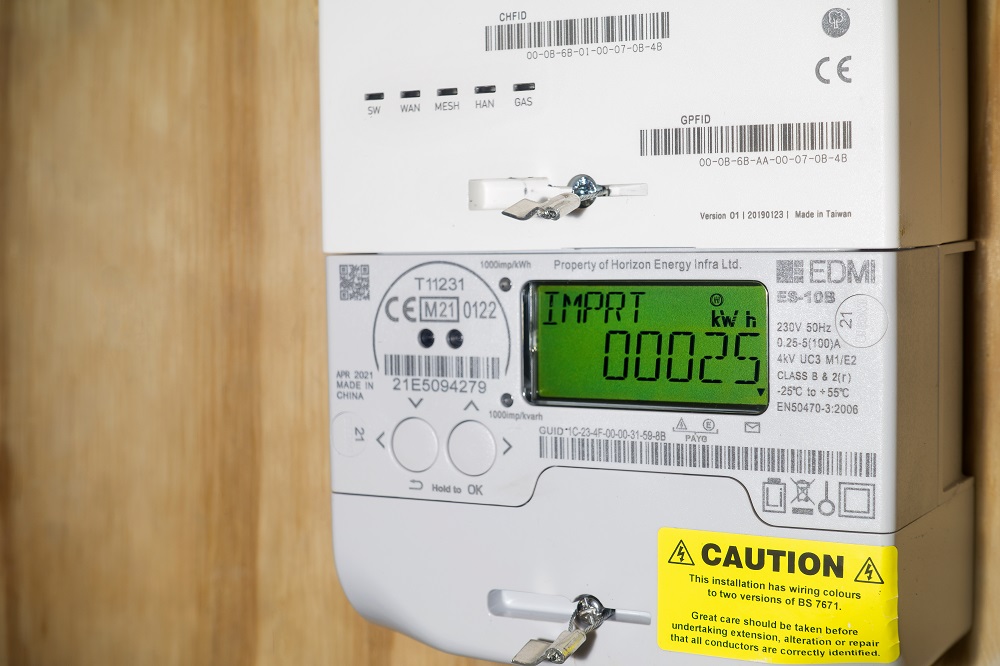What is the Market-Wide Half-Hourly Settlement (MHHS)?
Market-wide settlement reform is a key enabler of the move to a smarter, more flexible energy system and has a fundamental role in delivering the smart systems and flexibility plan. Ofgem’s analysis predicts that Market-Wide Half-Hourly Settlement (MHHS) will bring net benefits for consumers in Great Britain of between £1.6bn and £4.5bn over the period 2021-2045.
The role of DCC
The target model Ofgem envisage for the MHHS solution does not align with the current smart metering architecture or regulations, which DCC is now in the process of amending to resolve.
This will involve creating and supporting a new role, the Meter Data Retriever. On the wider programme, DCC will be involved in System Integration Testing. DCC will make available a Test Environment and perform data cleansing as is required to ensure the impacts are understood and that we are ready for implementation of the change.

Our changes for the Market-Wide Half-Hourly Settlement
DCC, as a service provider to the MHHS programme, is making changes to both the Data Service Provider (DSP) and Central Switching Service to accommodate the new Target Operating Model.
Changes to the Data Service Provider include:
- adding support for a new DCC user role, the Meter Data Retriever;
- enhancing the existing CSS-DSP interface to receive and confirm notifications of Meter Data Retriever appointments and de-appointments;
- performing a capacity upgrade to ensure Data Service Prover can manage the anticipated increase in volume of data across the solution, both in terms of settlement data collection and Meter Data Retriever appointments during migration.
Changes to Central Switching Service include:
- enhancing the existing interface between the Central Switching Service and Data Service Provider to send notifications of Meter Data Retriever appointments and de-appointments to Data Service Provider and receive confirmations;
- performing a capacity upgrade to ensure the Central Switching Service can manage the anticipated increase in Agent appointments associated with MHHS migration.
In addition, DCC is working closely with the MHHS Programme to ensure we can fulfil our roles as Central Switching Service and Data Service Provider System Integration Testing Participants.
What will MHHS look like for users?

Creation of a New User Role
This new DCC User Role is expected to be delivered in June 2024 SEC Release but will only become operational when MHHS Migration commences in April 2025. Those parties that wish to operate in the MHHS market as an Meter Data Retriever will need to undertake User Entry Process Testing for this DCC User Role.

How electricity suppliers will work with us
The impact of MHHS on electricity suppliers will be profound, however, in terms of their interactions with DCC, changes are likely to be minimal.
A key decision for electricity Suppliers to make is their strategy for settlement data collection: whether they extend their existing Electricity Suppliers schedules to include the additional settlement data required for MHHS or whether to delegate settlement data collection to a Smart Data Service operating an MDR.

Changes for DCC User Roles
Please note that the SEC (Section H3.13A) requires any DCC User submitting Service Requests for the purpose of submitting data to settlements to make the first attempt via a Data Service Provider Scheduled Service Request, regardless of DCC User Role. On Demand Service Requests should only be used where the Data Service Provider Scheduled Service Request has failed.
Data Cleansing
Some Market-Wide Half-Hourly Settlement (MHHS) Participants have data cleansing obligations under MHHS.
Whilst most data items that may be affected by data cleansing activities do not impact DCC, any intention to change Metering Point Metered Indentifier (meteringPoingMeteredInd) should be notified to DCC Operations prior to undertaking a data cleanse since changes to this data entity may cause issues within Central Switching Service.

How do we test MHHS systems?
MHHS SIT Functional Testing
DCC is utilising the User Integration Testing-B (UIT-B) test environment to support MHHS Systems Integration Testing. The DSP User Integration Test-B environment will be used to support MHHS System Integration Functional Testing and the Central Switching Service User Integration Test-B environment will be used to support both MHHS System Integration Functional Testing and MHHS System Integration Migration Testing phases.
A ring-fenced set of Meter Point Administration Numbers (MPANs) has been allocated for MHHS Testing to ensure there is no interference with existing testing.


User Entry Process Testing progress
User Entry Process Testing is laid out in the Smart Energy Code (SEC) with the requirements laid out as part of Modification Proposal 162.
Any user who will be their own Meter Data Retriever will be able to do that with no changes to its existing roles
A new agent would need to become an Other SEC Party, if it is not already, and undergo testing scenarios and the full process laid out in the SEC for any new user.
This process will ensure the security of the Smart Meter Ecosystem, ensuring user and consumer data remains secure. Any new user would need to undergo a Full User Security Assessment, if they have not done so already, and comply with Section G of the SEC.
How do we collect data?
Users are required to use a scheduled request for related DCC Service Requests in the first instance and should only use the on-demand version should a scheduled version be not-available (as in 4.1.1 or 5.1 for example, or as a retry following a failed scheduled attempt). This is required by the legal text to allow DCC to better manage capacity across the network.
More information
Find out more about:
- The plan for MHHS
- How testing will be managed
- The process behind MHHS
- How you can keep informed about MHHS
- What changes are being made to the regulations (MP162 modification)
- How this impacts the Retail Energy Code
- Join 'The Clock' for regular updates on the programme by going to the bottom of this page and clicking the 'Sign Up' button.
Further reading



